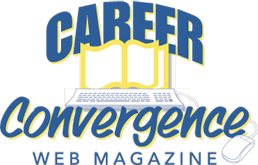12/01/2018
Preparing Teens to Succeed in the Workplace: A Foundation Initiated Effort
By John G. Bendt
In order to prepare for the future, a seminar was designed to enable teens to answer these two questions: What do I need to do to prepare for career success? What determines who wins the job in a competitive workplace?
The Flaherty Family Foundation initiated a conversation with teens about the workplace by providing sixty of their ninth grade scholarship recipients the opportunity to participate in a career preparation seminar. The foundation provides high school college prep scholarships to high potential students with economic need residing in Minnesota, Virginia, DC, Maryland, and Montana.
Seminar Content Detail
Throughout the seminar, a conversational style that encouraged active participation from students was employed. Power Point presentations and videos were used with the following focus.
Fundamental to achieving career success is understanding skill, effort and personal attributes comprise the basis of competition in the workplace, because employers use these criteria to make hiring decisions. Most teens have a vague understanding of this fundamental truth in the work world. They do, however, have experience with competition in sports and academics. Drawing teens into a discussion of who wins a starting position on a sports team, or a scholarship, establishes skill, effort and personal attributes as the key factors. Pointing out how these factors also apply to winning a job provides a connection to understanding workplace competition.
Workplace Skills: To compete for a job, it is important for teens to understand what skills employers value. Therefore, the next step was a discussion defining hard skills and soft skills. Hard skills are the specific skills required for an occupation (e.g., computer software programming). Soft skills (e.g. communication, teamwork) are required in all occupations. The U.S. Department of Labor’s Occupational Outlook Handbook was highlighted as a source to identify hard and soft skill requirements for occupations.
Studies have found that recent college graduates are lacking in critical soft skills they need to compete and succeed in the world of work (Strauss, 2016; Bloomberg Next Study, 2018). To help students avoid this pitfall, soft skills in the following categories were identified, defined, and their importance discussed.
- Ability to work well with others
- Problem solving
- Organizational skills
- Management skills
Discussion led students to the conclusion that both hard and soft skills are required to perform well in a job, and the more highly one develops skills important to employers, the more successful one will become.
Create Skill Advantage: Next, students were introduced to the idea of bundling hard and soft skills to distinguish themselves from others. For example, a physical therapist with strong clinical hard skills can further distinguish herself or himself by using strong interpersonal skills to educate patients about their treatments. Additional examples were used to demonstrate how highly developed soft skills can play a big role in creating an advantage when competing for a job.
Personal Attributes: Personal attributes like being motivated, dependable, goal directed, etc., can turbo charge skill advantages. A list of attributes was discussed and their power demonstrated by asking students to share experiences where these attributes were or were not exhibited in team projects, school clubs, sports and part time jobs.
Communication -Teamwork - Problem Solving: Special attention was devoted to these highly valued soft skills. A Ted Talk video, How Miscommunication Happens, was used to explain key communication principles. Discussion followed. Teamwork was addressed by exploring what a leader is, what makes a leader effective, the role of team members and what makes a team good. A practice exercise was used to bring these principles to life. Teams of eight were formed with a designated leader. Each member was given a plastic tube, which when whacked on a knee, produced a particular musical note. Teams were asked to create and perform a melodic creation.
A problem solving model was presented to teach students a problem solving process. Student groups of five were asked to solve a problem through use of the presented model plus communication and teamwork skills. Each group presented their definition of the problem and solution alternatives.
Opportunities to Learn and Practice Soft Skills: Ideas were solicited from the students to identify opportunities to learn and practice soft skills in the classroom, extra curricular activities and part time jobs. A few examples provided were using team sports or clubs to practice leadership, teamwork and organizational skills.
Career Discovery Tools: Exploration of occupations is a neglected activity for many teens. Thus students were taught how to use career discovery tools such as interest profile test software, O’Net Online and the Occupational Outlook Handbook. Additionally the foundation created a follow-up process to empower students to conduct ongoing explorations of potential career paths.
Seminar Evaluation* and Recommendation
A few examples of feedback from participants (*without using real names) demonstrate the value of engaging teens in a conversation about the importance of developing workplace skills long before they graduate high school.
“Thank you so much for opening my eyes to see that in order to succeed in life, we need to have a lot of qualities that I never would have guessed. I now have begun developing better understanding of how to succeed and ways to get there.” - Meria
“Thank you so much for coming and speaking to us, and teaching us about work and skills, and what we can do right now to be successful in life, and how to prepare for the future. You taught me so much, and I found all of it so helpful. I will take it with me for the rest of my life”. - Josh
“Thank you for taking some time out of your day to come and give us a presentation, and talk to us about business and what it takes to be successful out in the world. I appreciate what you have taught me. I have learned many useful things, like the importance of soft skills and hard skills together, and what it takes to meet those requirements. Thank you for teaching me what it takes to choose a good career.” - Lopez
Unfortunately many teens don’t have the benefit of this type of instruction. Often schools and parents do not connect the dots between school curriculum, selecting a career path, competition for jobs and the skills required to compete successfully. When the dots are connected to form a big-picture, teens get it, and are better equipped to prepare for their future.
Given the benefits teens gained from learning how to successfully compete in the workplace, it’s time to weave these lessons into the high school curriculums. It is time to equip teens with strategies and tactics they can use to nurture their readiness to compete when they begin their career.
References
Strauss, K. (2016, May, 17).
These are the skills bosses say new college grads do not have. Retrieved from
https://www.forbes.com/sites/karstenstrauss/2016/05/17/these-are-the-skills-bosses-say-new-college-grads-do-not-have/#4e83d7855491
Bloomberg Next. (2018).
Building tomorrow’s talent: Collaboration can close emerging skills gap. Retrieved from
https://www.bna.com/uploadedFiles/BNA_V2/Micro_Sites/2018/Future_of_Work/Workday%20Bloomberg%20Build-Tomorrow-Talent_FINAL.pdf
 is the author of
is the author of A Roadmap to Career Success; 25 Tips for College-Bound Students
. He has conducted career prep seminars for middle and high school students, and has written career planning commentary articles for Education Week and the National Career Development Association’s Career Convergence
Web Magazine. He can be reached through his web site, https://careerprepteens.com/
*Names represent pseudo-names and not the exact names of respondents.
 Competition in the workplace is a fact of life. For every job one wants, others will want it too. What determines who wins the job? Isn’t this a conversation we should be having with our teens? Isn’t being able to answer this question essential to achievement of career success? Unfortunately many teens are unable to answer the question with any specificity, because most schools and parents fail to address it. So let’s use the extended time we have with our teens due to Covid 19 to start the conversation. Let’s help them gain a big-picture view of what it takes to achieve career success, and how that relates to their current stage in life. Let’s equip them with strategies and tactics they can use to nurture their readiness to compete when they begin their careers? When we connect the dots between school curriculum, selection of a career path, competition for ja job, and the skills required to compete successfully, our teens are better equiped to prepare for their future.
Competition in the workplace is a fact of life. For every job one wants, others will want it too. What determines who wins the job? Isn’t this a conversation we should be having with our teens? Isn’t being able to answer this question essential to achievement of career success? Unfortunately many teens are unable to answer the question with any specificity, because most schools and parents fail to address it. So let’s use the extended time we have with our teens due to Covid 19 to start the conversation. Let’s help them gain a big-picture view of what it takes to achieve career success, and how that relates to their current stage in life. Let’s equip them with strategies and tactics they can use to nurture their readiness to compete when they begin their careers? When we connect the dots between school curriculum, selection of a career path, competition for ja job, and the skills required to compete successfully, our teens are better equiped to prepare for their future.







